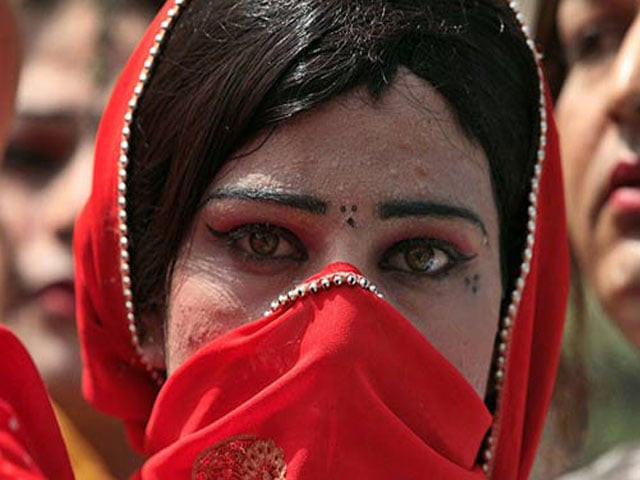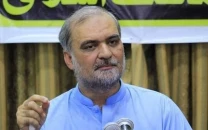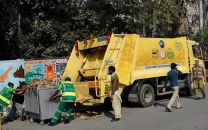Two per cent quota in local government suggested for transgenders
Policy calls for bringing the community into mainstream, granting protection against discrimination

Policy calls for bringing the community into mainstream, granting protection against discrimination. PHOTO: REUTERS
The draft policy was submitted earlier this week to the K-P government by stakeholders including Blue Veins and TransAction [Provincial Alliance of Transgender and Intersex Community].
According to the policy, a copy of which is available with The Express Tribune, it aims at ending the social stigma surrounding people who are transgender while ensuring non-discriminatory treatment for their community.
“The policy aims to enforce the constitutional rights of Transgender and intersex community by taking into account the Supreme Court judgment (from 2009) and other court directions,” it said, adding, that the policy covers all categories of people who identify themselves as transgender.
To empower the transgender community in the province, it has suggested the two per cent of reserved seats in local governments should be allocated to people who are transgenders.

The policy further suggests that the K-P government should ensure representation of people who are transgender at both, the provincial and local government level, to address their issues of their community.
Furthermore, it has called on provincial authorities to ensure that people who are transgender are registered in the electoral system so that they can equally take part in the elections process.
Moreover, the policy suggests that political parties should ensure that they have representation from the transgender community by fixing quotas for them. Further, the Election Commission of Pakistan should make such quotas for political parties mandatory.
Qamar Naseem, who drafted the policy and is a member of the K-P chief minister’s Special Committee on Rights of Transgender Person, told The Express Tribune that if the policy is implemented in the province, K-P would be the first ever state in the country to have such policy.
“Enactment of this policy would bring K-P more closely in line with international best practices for legal gender recognition,” said Naseem, adding, that the policy has tried to cover all aspects of the transgender community from the problems they face in the health, education, public transport and even political sectors.
In the transport sector, Naseem said that people who are transgender face abuse, harassment and discrimination and bullying at even segregated transport locations such as airports, railway stations and bus stations/
their draft policy suggests that the provincial government work to make buses and taxis, safe and friendly for people who are transgender.
“All the new public transportation schemes such as the Bus Rapid Transit System shall be ensured by the provincial government that it should be transgender-friendly so that they could use it,” the policy states, adding, seats may be reserved people who are transgender in public transport vehicles – like seats reserved for women.
The policy has also suggested that some terms relating to people such as transgender are defined such as “transgender” is defined as an umbrella term to describe those whose gender identity and expression does not conform to the norms and expectations traditionally associated with their sex at birth.
Moreover, the policy defines an intersex person has someone who “is born with sexual anatomy, reproductive organs, and/or chromosome patterns that do not fit the typical definition of male or female. This may be apparent at birth or become so later in life.”
Published in The Express Tribune, July 8th, 2017.



















COMMENTS
Comments are moderated and generally will be posted if they are on-topic and not abusive.
For more information, please see our Comments FAQ